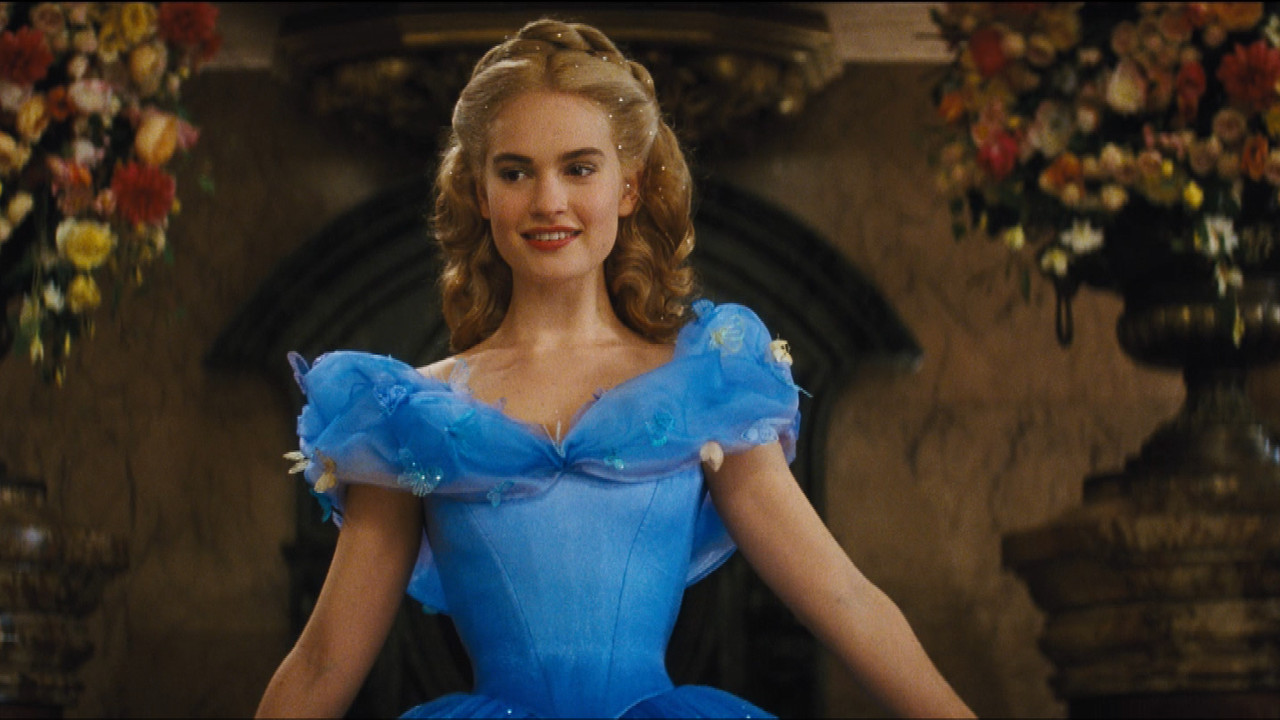When we start off playing the game we do so with money in our pocket – it’s part of the package. We collect 200 dollars as we pass ‘GO’ and that speeds us on our way. We launched into the game and there’s no turning back. We could also express this key idea by saying that when we adapt to a defined environment then there is always an immediate pay-off in terms of euphoria. Adaptation to a defined world (or ‘closed system’) always involves a pay-off in terms of euphoria and this – we might say – constitutes the essential ‘incentivization’ behind the game. That’s what kicks the whole thing off.
There is nothing mysterious about where this pay-off comes from – all we need to do to understand it is to look at what’s happening when we adapt to a closed (or defined) system, when we start ‘playing the game’. What is essentially going on here is that we have discovered a cheat. We’ve found a way of short-cutting the difficulty involved – we’ve ‘hacked’ life, so to speak. An enormous oversimplification – which we’re not aware of – has taken place and so it’s as if we’ve got ‘something for nothing’. Getting ‘something for nothing’ is always a good deal – it’s like getting a bargain in the supermarket or finding a fifty euro note lying around ownerless in the street. Whenever we feel euphoric it’s always because we think that we’ve just got something for nothing – this is where the particular type of good feeling called ‘euphoria’ (i.e. the good feeling we get when we win at the game) comes from…
It’s as if we have a long arduous journey ahead of us – an incredibly long and arduous journey – and someone comes along and tells us that they know a short-cut. What a good feeling this is! Owe could say that it’s like having an essay or a dissertation to write and paying someone else to write it for us. When an effective cheat is found there is an immediate pay-off and when we’re talking about finding a short-cut in life itself then the euphoric boost we’re looking at here is in no way different from the intense high that is produced by taking a euphoriant drug such as cocaine or crystal meth. Adapting to a defined (or closed) world is therefore as addictive as any drug! This is like a ‘one-way door’; it’s like a door we go through that only works one way – we can adapt (or go through) with the greatest of ease but we can’t come back the same way! The whole point of a cheat wrt reality is that we don’t know that it is a cheat – the euphoria comes about precisely because we don’t know that the simplification of reality is a simplification, that the model or simulation is only a model or simulation.
The ‘high’ or euphoric pay-off comes about because of the way we think we’re getting something for nothing – if we knew that the impression which we have of getting some kind of windfall, some kind of freebie, is false (i.e. if we can see that there is some kind of trick or deception going on and that, actually, we’re NOT getting anything for free) then – very obviously – we would not get a high, we would not get a euphoric pay-off. The element of deception is an absolute requirement if there is to be any ‘feeling good’ about the short-cut we think we have found – not only must reality be hugely oversimplified but – also – we mustn’t realize that this is what has happened. We mustn’t be able to spot the over-simplification of reality as such; we mustn’t be able to spot the simulation as being a simulation. The situation where we don’t spot the simulation as being the simulation is what Jean Baudrillard calls ‘the perfect crime’.
If the cheat or deception is that we are ‘getting something for nothing’ (i.e. that we are obtaining the benefit without paying the price) then plainly the truth is that we are not. When we oversimplify reality then what we’re saying reality is isn’t actually the case. In order to pull off the deception we need to ignore a huge chunk of reality (so to speak) but just because we have perpetrated a trick on ourselves whereby we are now quite unable to see this missing part of reality doesn’t mean that it isn’t there – it’s just invisible to us, that’s all. All that we’ve done is to make ourselves stupid, in effect. The universe isn’t really as easy to ‘get the better of’ as we imagine it to be and so although we get off to a flying start with the help of our delusion isn’t only a matter of time before we take a pratfall! First there’s the honeymoon phase in which we’re lured into the illusory simplified world, and then once we’re stuck in it (with no means of retracing our steps) we find ourselves facing all sorts of problems that we didn’t anticipate. Things don’t turn out quite as we had (euphorically) imagined – in fact they turn out very differently indeed!
The pattern of ‘euphoric promise’ plus ‘eventual letdown’ ought to be pretty familiar to us. It might not be immediately clear – we might be in the deluded / optimistic / euphoric phase in which we still believe that there is such a thing as ‘an easy answer to life’- but sooner or later it will become clear. Sooner or later we will see the pattern for what it is. This is the one great lesson that life teaches us, after all – that there are no easy answers. Ultimately, the lesson life teaches us (if we’re not too stubborn to learn it) is that there just is no answer – easy or otherwise! If this sounds pessimistic or not very upbeat then that shows that we’re still in denial and that – on this account – we’re still not seeing things clearly. This apparently ‘negative’ or ‘pessimistic’ lesson is actually the most liberating insight there is – it is liberating because what we’re finally seeing is that reality isn’t the oversimplified model that we thought it was.
What we’re really learning here is that the world is a far bigger and more mysterious place than we took it to be, and so what’s so bad about this? If we could see why it that we are so very averse to discovering that reality is far more complex than we originally believed it to be then we’d be onto something very important. This is a truly fascinating question – why is it that we are so very resistant to discovering that the world we live in is an infinitely bigger and more mysterious place than we took it to be? Why is there such a deep-rooted tendency to refuse to see that our model or idea of reality is only a model or idea? What kind of a perversity is this?
This isn’t by any means as mysterious or obscure a matter as it might at first appear – the reason for our obstinate refusal to learn the great lesson that life has to teach us (which is the lesson that there is more to life than we thought there was) is because we are thereby protecting something that is very precious to us, something that is more precious to us than anything else. We’re protecting the conception we have of ourselves – we’re protecting the self-concept, the self-image. This idea that we have of ourselves – which is our ‘self’ – can only exist within the confines of a defined (or ‘over-simplified’) reality. That’s the ‘condition’ for its existence. This is the deal – and there’s no other on the table. The self has to have a closed or defined world around it to give it solidity – it can’t hang together otherwise. The defined world is actually a projection of the self; it’s what the world looks like from the point of view of the self. Or to put this even more clearly, the ‘self’ and ‘the defined world’ are two ways of talking about the same thing.
This is really a ‘chicken and egg situation’: the process of adapting ourselves to the defined world is the process of defining ourselves in terms of this world and when we define ourselves in this way we have only the one way of understanding and perceiving what the world around us is and what it is about. When we define ourselves in terms of a system we become that system and so there aren’t two things there – there’s only the one. As we said at the beginning of this discussion, when we pass ‘Go’ with respect to playing the game we start off with a flying start, we start off with 200 freshly-minted dollars in our pocket and that feels like a lot. We start off with a booster-shot; we get a special bonus pay-off in the currency of hard euphoria. This euphoria is inseparable from the creation of the self; we could also say that the initial euphoric charge is the thing that seduces us into identifying with the self. Why wouldn’t we go for it, seeing that we’re rewarded straightaway – with no questions asked – with a big fat packet of ‘feeling good’? Why wouldn’t we buy into the game when straightaway we get to have two hundred dollars in our pocket which we can spend on anything we like? What could be greater? Actually – as it turns out – many things would be greater but we just don’t know that yet; we’re in far too much of a hurry to spend our money to notice them. We’re ‘going for the obvious benefit’ and we’re not asking too many questions. Why look a gift horse in the teeth, after all?
The ‘creation of the self‘ is synonymous with the creation of the package of euphoria. We can think about this in terms of basic chemistry and use the analogy of the creation of a stable molecule such as hydrogen chloride from the two highly reactive elements of hydrogen and chlorine. As every chemistry student knows, it’s all excitement at first when it comes to mixing equal volumes of hydrogen and chlorine but once that initial burst of excitement has passed there’s no more to come – everything’s as dull as ditch water after this! The more reactive the elements the more energy gets released in the reaction but – at the same time – the more energy gets released at the moment of creating the stable compound the more stable – i.e. unreactive – it’s going to be. So the bigger the party at the start, the duller things are going to be afterwards. In a directly analogous way, therefore, the bigger the dose of euphoria that comes about, the more sterile the conditions will be that follow it. It’s like falling down a deep hole – the deeper the hole the more potential energy is released (the more ‘falling’ is involved) and so what this means that when we drop to the bottom of that deep hole there aren’t going to be many possibilities available to us. Actually, the only possibility on the table is the not-very-exciting possibility of staying in that deep, deep hole! The ‘hole’ in this case being ‘the defined or positive world’, needless to say…
We could say that the pattern here – i.e. ‘the way that things go’ – is that there is the appearance of something great happening, or something great being about to happen, there is the appearance of all sorts of wonderful possibilities, when actually there is nothing happening, when actually there is zero possibility of anything happening, wonderful or otherwise. Being stuck forever in a hole is not any sort of possibility, when it comes down to it! There are no possibilities in a logical continuity, and that is all the thinking mind can ever produce for us. When we adapt to the continuum of logic, however (which is the same thing as ‘the defined world’), then there do appear to be possibilities there. We can’t actually see the ‘lack of possibilities’ and this is the whole point. The whole point is that when we’re adapted to the logical continuum (which is the ‘closed system’ or ‘positive world’) we can no longer see it for what it is – instead, we see a world that is made up of positive and negative, YES and NO. The logical continuum is like a thin sheet of metal that someone has bashed with a big lump hammer to put a hefty dent in it – the dent is the conditioned self, the dent is our rational viewpoint on the world that sees everything in terms of either one opposite or the other.
What we see when we are operating from this viewpoint is not ‘zero possibility of anything happening’ (which is how things are) but a ‘positive possibility’ versus a ‘negative one’. We see highly agreeable possibilities versus very disagreeable ones and so this whole business of controlling comes into play because the logic of the situation insists that we avoid the disagreeable or negative possibility whilst angling as skilfully or as forcefully as we can for the agreeable or positive one. The logic of this situation is that we ‘play the game’, in other words. Because we can’t see the world in any other terms than the +/- terms of the logical continuum controlling is the only thing we understand – that’s the only word in our vocabulary, so to speak. Everything is always about either things getting better or things getting worse, which in terms of our analogy means being positively displaced from the base level (which is the sheet of metal with no dentin it) or being negatively displaced. What we can’t see is that a dent always has these two aspects – a convexity on one side and a concavity on the other. We can’t see that ‘positive’ and ‘negative’ can never be separated and because we can’t see it – because we are now constitutionally unable to see it – we are completely caught up on a full-time basis with this business of controlling, this business of separating plus from minus, good from bad. The ‘wonderful possibility’ that we see in the defined world (and get so excited about) is the possibility of doing just this!
The conditioned self that we identify so absolutely with is made up of ‘plus’ and ‘minus’, ‘good’ and ‘bad’, ‘yes’ and ‘no’, and it is forever chasing itself around the place! That’s its activity, that’s what it does. That’s the only thing that it’s interested in, as we have just said. That’s the game – the game is pretending that we can chase the agreeable possibility without bringing the disagreeable one on top of us as a consequence of our ‘mechanical tropism towards the positive’. This mechanical/conditioned self is the ‘dent in the two-dimensional surface of the continuum of logic’ and so it is at all times both a concavity and a convexity; it will bring the in-dent and the out-dent with it wherever it goes but because it thinks it can ‘catch up with the one and outrun the other’ it will keep on running. It will keep on with its ‘purposeful activity’; it will keep on chasing these magnetic goals. The dent is merrily chasing itself around the sheet of metal, in ignorance of its true nature. The wrinkle is chasing itself around the tablecloth. The incentive that we talked about at the beginning of this discussion is the feeling that we have actually achieved this, that we actually have the possibility of doing this. The belief that we can have the good without the bad is what creates euphoria. So this seems to be working for us as we start playing the game and this is what sucks us in. What we learn once we have been sucked in (irreversibly sucked in, just like we fall irreversibly down a hole) is that there isn’t such a possibility after all and this learning process – long drawn out as it may be – it tinged with dysphoria. The Great Lesson that life teaches us is bitterly resisted to the very end; as we have said – on a very fundamental level – we don’t want to learn that there is more to life than the sterile game of the conditioned / mechanical self…..






